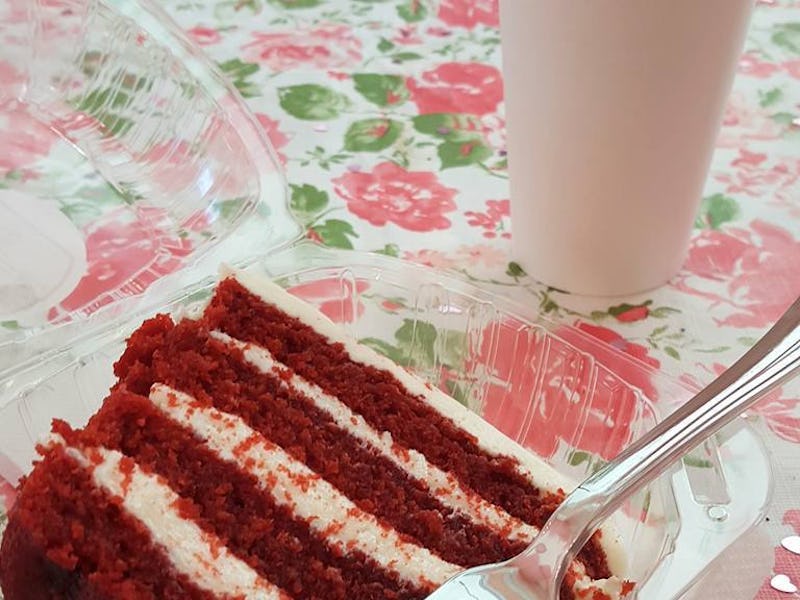Taking Photos of Your Food Makes Your Brain Think It Tastes Better
The psychological reason why Instagramming your food makes you think it tastes better.

Scan the room at a four-starred Yelp reviewed restaurant and you’ll realize they’ve surrounded you — even yet, you might be one yourself. While society hasn’t come up with a punchy name for it yet, people are increasingly wary of cutting into the yolk of their perfectly poached Eggs Benedict before first taking a photo of dish. The people who fill your Instagram with foodporn and #cleaneating might be onto something: Science has found they probably enjoy their food more.
Research published on February 23 in the Journal of Consumer Marketing has found that creating “consumer-generated images” (the pictures people take of their food) is likely to cause an increase in enjoyment of the meal. There’s a handful of takeaways here, but the main reason this happens is because taking a photo of a meal before eating it delays consumption. As psychological studies consistently demonstrate, when you delay something and later receive it, you’re going to enjoy it more.
To figure this out, the researchers conducted three studies, each with 120 participants. In the first study, participants were given either a slice of red velvet cake or a fruit salad and told they had the option of taking a picture of the food. They found that the people who took a photo of the red velvet cake thought it tasted better than the people who didn’t — those who took a photo of the fruit salad didn’t experience a change in perception.
The second study found that people who were told that the cake was made of glutenous materials rather than fat-free enjoyed it more — although both slices were made of the same thing.
But the final study was the most revealing when it comes to our own guilty psychology — if the participants found out that other test subjects chose to take a picture of the healthy food, they were more likely to give a high evaluation to the fruit salad. Just the pressure to appear as healthy as other photo-snapping people increased enjoyment perceptions— if the food was good enough to document, it must be good enough to eat.
The findings of this new paper are in line with previous research which has found that experiential purchases bring more happiness than purely material purchases. Taking a photo of what you eat — regardless of how others may judge — adds a second activity on top of the experience of eating a delicious meal. The positive effects of anticipation are amplified here as well; waiting for an experience brings more happiness and excitement than waiting for something material like a new couch.
While posting photos of food may work out great for the photographer, it’s a less than ideal situation for everyone looking at feeds of decadent cuisine. Research conducted in 2013 found that if you eat exactly the meal you’ve been salivating over online, you’re probably not going to like it very much.